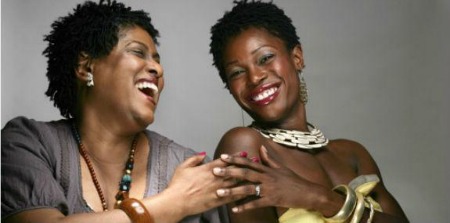
(The Root) — Sometime last week, a poll was released by Reuters/Ipsos that found 40 percent of white Americans had no friends of color and 25 percent of people of color had no friends of a different race. Covering a broader circle of acquaintances to include co-workers as well as friends and relatives, the poll showed that 30 percent of Americans are not befriending others of a different race.
That “news” spread quickly, with an emphasis on how so many white people didn’t have black friends. There were, of course, Paula Deen jokes and giggles about that elusive “black friend” that nonblack people always allude to when they’re denying they’re racist, and someone discovered a spoof site (I hope it’s a spoof site; you can never be too sure) called BlackFriendConnect, where white people can rent a black friend for the day. There was a delight in chiding this chunk of white folks for, intentionally or not, self-segregating.
But even as I laughed and teased, I wondered, “Hold up; what’s really wrong with white people not having black friends?”
Here’s the thing: I, like most of my friends, don’t have white friends. Asians, Indians and Hispanics? Yes, at least one of each. And not in a token “Here’s my different-race friend; I have to say I have one” way, but more like the “If you call me in the middle of the night, I will show up” way.
I have black friends who represent the entire black Diaspora from South Africa to Haiti to Brazil to Alabama. But actual white friends, as in people I actually hang out with? No. Not a one.
I’m not entirely sure why that is. It wasn’t planned. I never sat and decided “no white friends.” I don’t harbor any secret loathing for white people in general, or white women specifically. It just sort of happened.
And maybe that’s strange, seeing as how I live in New York City, oft touted as the most diverse city in America. But my Brooklyn slice of life is as nonwhite as Lena Dunham’s Girls (also based in Brooklyn) is starkly white. From house parties and BBQs and weddings and Sunday service, pretty much everyone I invite out and interact with everywhere I go (except for work or other business endeavors) is black or “of color.”
What might be even stranger is that I went to predominantly white schools and universities, and half of my jobs have been in predominantly white workplaces. I’ve been cozy with several white people, but once the semester ended, graduation came or I got a new job, the classroom or cubicle “friendship” fell by the wayside.
A year or so ago, I wrote about my unintentional, predominantly all-black world for Clutch magazine in a story called “All My Best Friends Are Black.” It was a celebration of black sisterhood, a way to scoff at the surprisingly widely held belief that black women don’t or can’t get along. Some readers received it that way. Others insisted that something was wrong because I didn’t have white friends, and I should go make some.
The suggestion — in essence, “tokenism,” whether it’s encouraging black people to have white friends or white people to pick up nonwhite friends just to say they have some — is laughable. People — black, white, brown and all other colors — should select their friends based on who they mesh with, period. I don’t want any token friends, and I certainly don’t want to be the token black friend for anybody else.